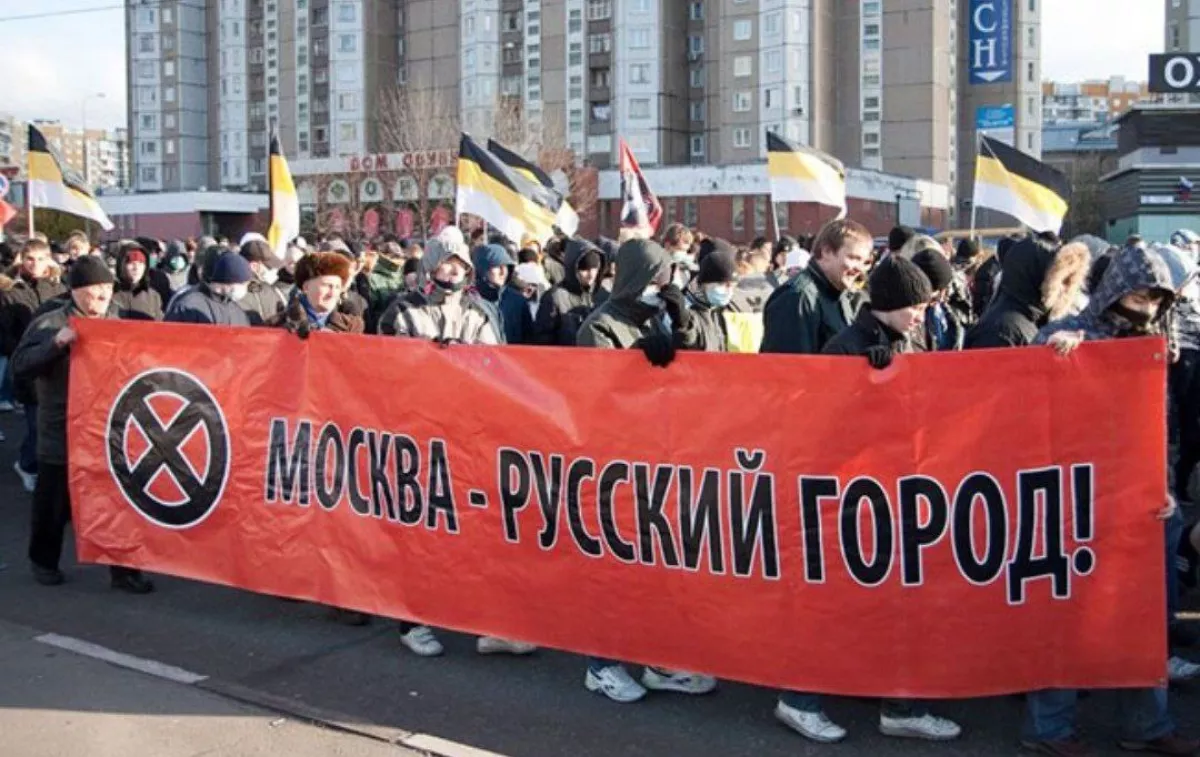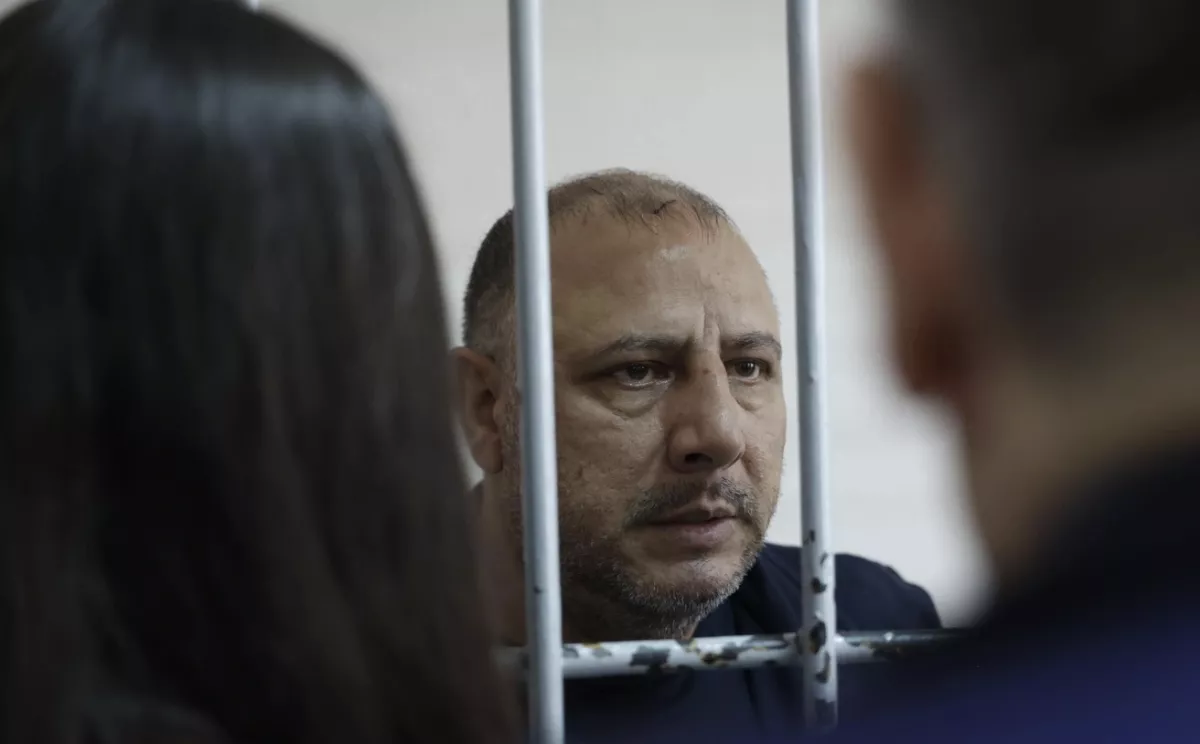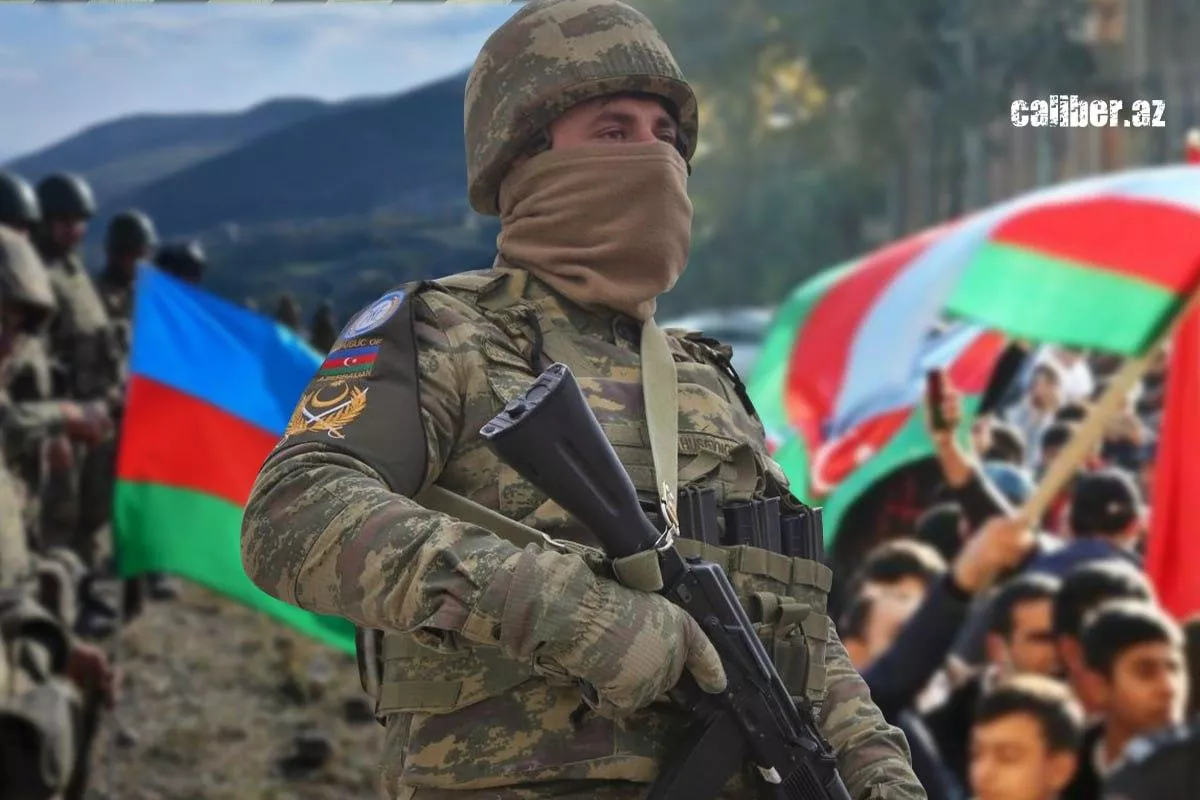Broken destinies in the country of imperial chauvinism Ski masks instead of conscience
Raids by security forces in Yekaterinburg targeting members of the Azerbaijani diaspora, which resulted in the detention of dozens of people and the deaths of two brothers — the Safarovs — due to brutal beatings, have brought back memories of old Russian traditions: chauvinism, and discrimination based on ethnicity, religion, and race. All of this, to use the language of Kremlin propagandists, constitutes the “spiritual bonds” of Russia.
The lawlessness unleashed by uniformed thugs in Yekaterinburg is just one episode in a long series of repressive actions that the Kremlin systematically carries out against peoples it deems “other” — whether because of their ethnicity, religion, or simply an “unacceptable” surname. It’s important to remember that Russia has, for centuries, shown disdain for the rights of other nations — from the tsarist era to the Soviet Union and into today’s modern Russia.
Such policies are deeply rooted in Russian statehood. The practice of forced Russification, suppression of national movements, deportation of entire peoples, and the destruction of whole cultures has been — and remains — the essence of the Russian imperial approach.
Undoubtedly, with the collapse of the USSR, many peoples hoped for a new format of coexistence with Russia — one based on respect for their national identity. However, when Vladimir Putin came to power, he not only failed to dismantle the imperial hierarchy but strengthened it. He effectively rehabilitated Stalinism and provided it with ideological justification — through the security apparatus, propaganda, and the Russian Orthodox Church.
In this sense, the events in Ukraine are merely the tip of the iceberg. The Kremlin is ruthlessly erasing everything tied to Ukrainian identity. The mass bombings of civilian cities and widespread deportations make it clear that Moscow does not recognize other nations’ right to independent existence. And if this is how Russia treats Ukrainians — a people with whom it shares religion, language, and centuries of intertwined history — then it is hardly surprising that its policies toward the peoples of Central Asia and the Caucasus (both North and South) are even more brutal.

The head of Russia’s Investigative Committee, Alexander Bastrykin, regularly makes openly provocative statements, attempting to portray labor migrants from various former Soviet republics as the primary culprits behind the rise in crime across the Russian Federation. A special term — “ethnic criminality” — coined by Russian security services, has become a new tool of institutional discrimination. Under this pretext, individuals from Azerbaijan, Uzbekistan, Kyrgyzstan, Tajikistan, and other countries are systematically targeted. In today’s Russia, ethnic background alone has become sufficient grounds for arrests, detentions, and deportations.
Mass raids against migrants, especially in large cities, are accompanied by humiliation, beatings, forced fingerprinting, and blackmail. Under the guise of fighting crime, security forces are effectively carrying out ethnic cleansing. Back in the turbulent 1990s, Russia became the epicenter of neo-Nazi movements. The victims of these groups of skinheads flashing Nazi salutes were people “of Caucasian nationality,” Muslims, and migrants. At that time, one could still speak of “uncontrolled” radicals. But today, the roles once played by those skinheads have fully transferred to state institutions: the police, the National Guard, and the FSB. In this way, the Russian state has not only stopped fighting neo-Nazism — it has incorporated it into itself. What skinheads once did on the streets is now done by law enforcement officers wearing balaclavas with the Russian Federation emblem on their sleeves. The events in Yekaterinburg are yet another clear and vivid proof of this.

At the same time, the Russian Orthodox Church has become the ideological mouthpiece of modern Russia. Its priests openly bless the war against Ukraine, preach hatred toward non-believers, and justify deportations and the destruction of civilians. Simply put, the ROC has turned into a spiritual equivalent of the NKVD under Yezhov — its rhetoric is sprinkled not only with holy water but also with blood.
In this context, there is little reason to be surprised by the horror experienced by members of the Azerbaijani diaspora in Yekaterinburg. What we see here is a clear example of security forces operating according to a pre-approved script: forceful raids on homes and apartments, mass arrests, beatings, extracting coerced testimonies, and ignoring legal and medical assistance. What happened in Yekaterinburg serves as a symbol of what any diaspora in Russia might face if it does not raise its voice in time.
In this regard, let me remind you of what happened on the evening of April 10, 2025, at the “Bodrost” bath complex in northern Moscow (Timiryazevsky district). On that occasion, another “raid” was carried out by police officers in cooperation with the FSB and the National Guard. A video surfaced on social media showing migrants from Kyrgyzstan being forced to lie on the floor, kicked, and trampled on for several hours. The Kyrgyz Ministry of Foreign Affairs summoned the Russian ambassador and expressed concern over the mass arrests and beatings of its citizens. However, the Russian response was typically cynical — doing whatever they want regardless. Essentially, this is the same dismissive attitude the Russian side shows toward the justified complaints from official Baku regarding what happened in Yekaterinburg.
Is what’s happening really surprising? Not at all. A brief look into the recent history of our country reveals just how monstrous Russia’s crimes against our state and people have been. The genocide of peaceful Azerbaijani civilians in Khojaly was carried out by Armenian occupiers together with servicemen from the Russian 366th Motorized Rifle Regiment. Many officers and soldiers from that unit still live in Russia today, having faced no punishment whatsoever for their complicity in this horrific crime against peaceful Azerbaijani civilians.
Russia was effectively the guarantor of the Armenian occupation of 20 percent of Azerbaijan’s territory. This situation lasted for nearly 30 years. Armenian armed forces would never have captured or maintained control over Karabakh without Russian support — diplomatic, military, and financial. That is why Azerbaijan’s historic victory in the 44-day war, as well as the full restoration of our state’s sovereignty and territorial integrity, is a thorn in the Kremlin’s side, periodically triggering real hysteria among Russian imperialists. Hence the barking of the Kremlin’s propaganda attack dogs.

Besides, not long ago, we witnessed Russia’s refusal to acknowledge its obvious responsibility for the downing of an Embraer 190 aircraft belonging to Azerbaijan Airlines (AZAL), which was shot down by the Russian Pantsir-S air defence system. The plane was operating flight J2-8243 on the Baku–Grozny route. As a reminder, 38 of the 67 people on board—including both pilots and a flight attendant—lost their lives in the crash. Instead of issuing clear, formal apologies and punishing those responsible for this tragedy, Russia responded with arrogance, rudeness, deceit, and provocations. Specifically, Moscow orchestrated a cyberattack on Azerbaijani media outlets, including Caliber.Az. It has been openly stated that this cyberattack originated from Russian territory. The attack was carried out by the cyber espionage group APT29—also known as Cozy Bear, Midnight Blizzard, or The Dukes—closely linked to Russian state structures. And what do you think? Even after this information was publicly revealed by Ramid Namazov, chairman of the Milli Majlis commission on countering foreign interference and hybrid threats, the Russian side neither admitted guilt nor apologised.
The Russian side adopted the same pattern of behavior in the case of the Azerbaijani Milli Majlis deputy Badamov’s entry ban to Russia. He was informed that he had been declared persona non grata in Russia only after he had already arrived in Moscow with his parliamentary colleagues, planning to travel to Astrakhan for events dedicated to the 102nd anniversary of Heydar Aliyev’s birth.
So, as we can see, the punitive raid against Azerbaijanis in Yekaterinburg is a predictable pattern for modern Russia. It is rapidly transforming into an ethnic-state where the word “Russian” no longer simply denotes a nationality but serves as an ideological license for violence. The sooner international institutions, diasporas, and peoples recognize this, the greater the chance for change. In these circumstances, silence becomes a form of complicity, while exposing the truth is a step toward justice—and possibly toward fairness.








